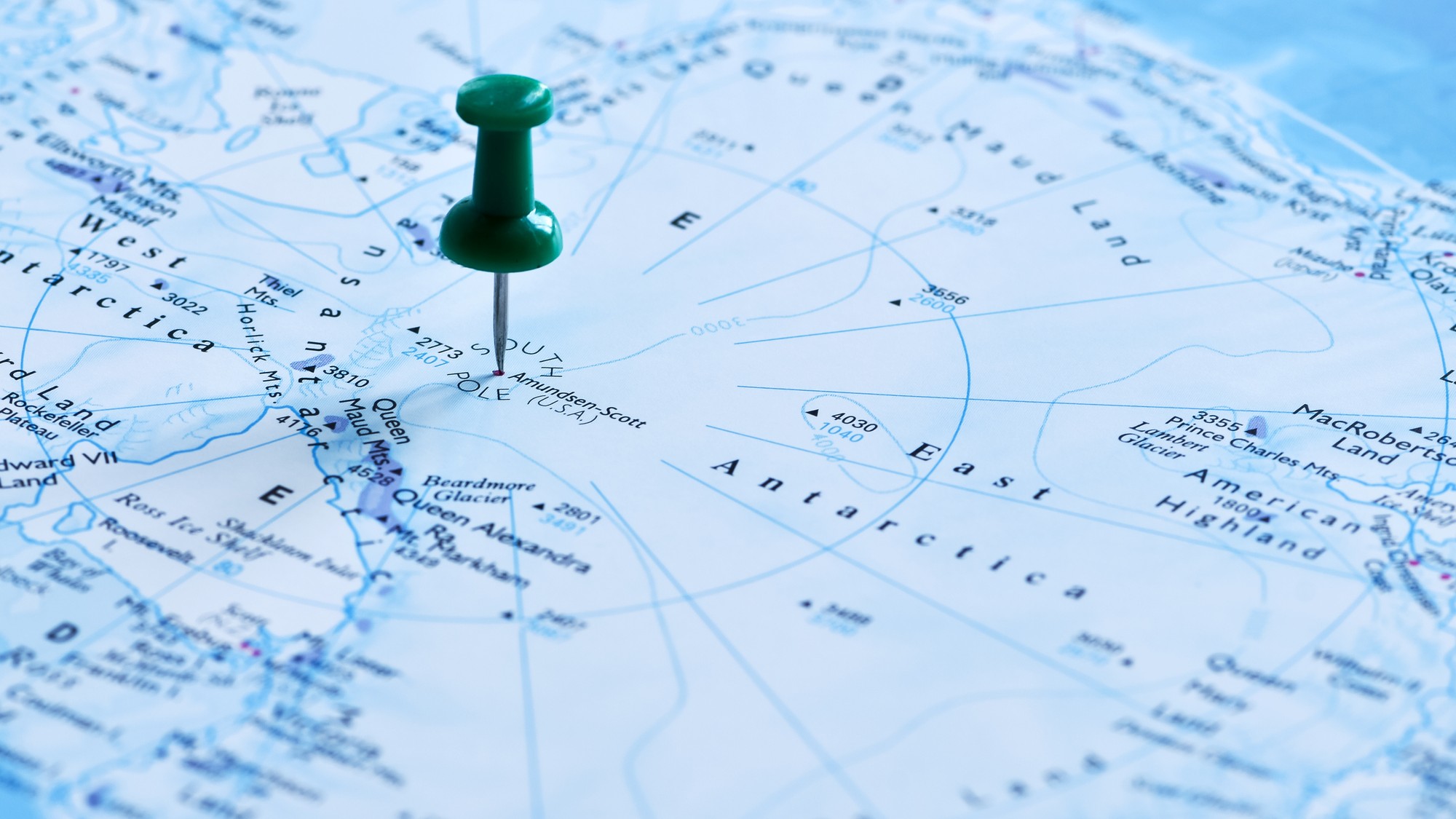Under Antarctic ice lies a hidden landscape
Climate change may reveal it over time


A free daily email with the biggest news stories of the day – and the best features from TheWeek.com
You are now subscribed
Your newsletter sign-up was successful
Below the Antarctic ice lies an "unmodified" landscape that has been preserved "despite millions of years of ice cover," according to a new study published in the journal Nature Communications. The East Antarctic Ice Sheet (EAIS) covers 12,000 square miles, and frozen under the surface is a "landscape of hills and valleys carved by ancient rivers," AFP reported. "It is an undiscovered landscape — no one's laid eyes on it," said Stewart Jamieson, a glaciologist at Durham University and the lead author of the study. "What is exciting is that it's been hiding there in plain sight."
Scientists discovered the area by "trac[ing] out the valleys and ridges" using existing satellite images of the region, Jamieson said, along with a technique called radio-echo sounding, which is when a plane flies overhead and sends radio waves into the ice to analyze the echoes. "Given this discovery of an ancient landscape hidden in plain sight, and that of others, we propose that there will be other similar, as yet undiscovered, ancient landscapes beneath the EAIS," the study noted.
Climate change has been slowly melting the EAIC, and that could eventually reveal the landscape that has been buried beneath for between 14 million to 34 million years, according to the researchers. Experts posit that before it was frozen in ice, the land had a "climate similar to modern-day southern South America," with evidence of palm trees and other tropical vegetation, ABC News reported. "We understand the Moon better than East Antarctica," University of Tasmania polar scientist Matt King, an expert on melting Antarctic ice, said last year. "So, we don't yet fully understand the climate risks that will emerge from this area."
The Week
Escape your echo chamber. Get the facts behind the news, plus analysis from multiple perspectives.

Sign up for The Week's Free Newsletters
From our morning news briefing to a weekly Good News Newsletter, get the best of The Week delivered directly to your inbox.
From our morning news briefing to a weekly Good News Newsletter, get the best of The Week delivered directly to your inbox.
A free daily email with the biggest news stories of the day – and the best features from TheWeek.com
Devika Rao has worked as a staff writer at The Week since 2022, covering science, the environment, climate and business. She previously worked as a policy associate for a nonprofit organization advocating for environmental action from a business perspective.
-
 The ‘ravenous’ demand for Cornish minerals
The ‘ravenous’ demand for Cornish mineralsUnder the Radar Growing need for critical minerals to power tech has intensified ‘appetite’ for lithium, which could be a ‘huge boon’ for local economy
-
 Why are election experts taking Trump’s midterm threats seriously?
Why are election experts taking Trump’s midterm threats seriously?IN THE SPOTLIGHT As the president muses about polling place deployments and a centralized electoral system aimed at one-party control, lawmakers are taking this administration at its word
-
 ‘Restaurateurs have become millionaires’
‘Restaurateurs have become millionaires’Instant Opinion Opinion, comment and editorials of the day
-
 Earth is rapidly approaching a ‘hothouse’ trajectory of warming
Earth is rapidly approaching a ‘hothouse’ trajectory of warmingThe explainer It may become impossible to fix
-
 The environmental cost of GLP-1s
The environmental cost of GLP-1sThe explainer Producing the drugs is a dirty process
-
 The plan to wall off the ‘Doomsday’ glacier
The plan to wall off the ‘Doomsday’ glacierUnder the Radar Massive barrier could ‘slow the rate of ice loss’ from Thwaites Glacier, whose total collapse would have devastating consequences
-
 Can the UK take any more rain?
Can the UK take any more rain?Today’s Big Question An Atlantic jet stream is ‘stuck’ over British skies, leading to ‘biblical’ downpours and more than 40 consecutive days of rain in some areas
-
 As temperatures rise, US incomes fall
As temperatures rise, US incomes fallUnder the radar Elevated temperatures are capable of affecting the entire economy
-
 The world is entering an ‘era of water bankruptcy’
The world is entering an ‘era of water bankruptcy’The explainer Water might soon be more valuable than gold
-
 Climate change could lead to a reptile ‘sexpocalypse’
Climate change could lead to a reptile ‘sexpocalypse’Under the radar The gender gap has hit the animal kingdom
-
 Why scientists want to create self-fertilizing crops
Why scientists want to create self-fertilizing cropsUnder the radar Nutrients without the negatives
